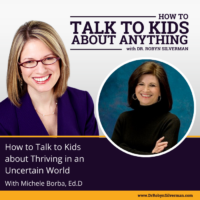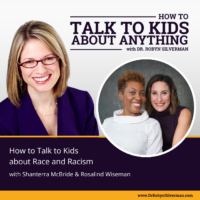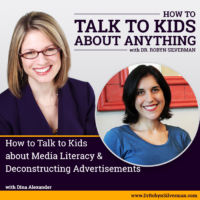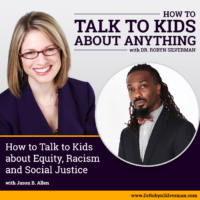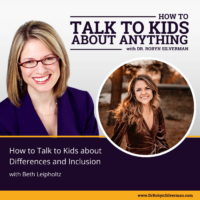Podcast: Play in new window | Download
Subscribe: Apple Podcasts | RSS | More
How to talk to Kids about Empathy and Entitlement
This podcast will focus on the habits of empathy that we truly need to encourage in every child for the good of their futures…and the good of ours. Empathy is the ability to understand and share the feelings of another person. It allows our hearts to go out to others, care deeply, help, uplift, connect and love. In a world that often seems to shout, “go big or go home,” “take no prisoners,” and “let’s take a selfie!” empathy seems to be getting crowded out of the child-raising conversation- and yet, empathy is vital to health, wealth, happiness, relationship satisfaction and resilience. It promotes kindness, reduces incidents of bullying and boosts critical thinking skills. Empathy, according to our expert guest, Michele Borba (author of Unselfie), is the core to everything that makes a society civilized, but above all, it makes out children better people.
Special Guest: Dr. Michele Borba
Dr. Michele Borba is an internationally recognized educational psychologist and expert in bullying, social-emotional learning, and character development and has spoken to over one million participants on five continents. She is a Today Show contributor, appearing over 140 times, and featured as an expert on Dateline, The View, Dr. Phil, and more, among others and regularly quoted in national media from New York Times, TIME, Boston Globe, Washington Post. Dr. Borba has authored 24 books; her latest are UnSelfie: Why Empathetic Kids Succeed in Our All-About Me World and End Peer Cruelty, Build Empathy: The Proven 6 Rs of Bullying Prevention that Create Inclusive, Safe and Caring Schools which comes out this week! For more information see: micheleborba.com, Facebook: Facebook.com/drmicheleborba/ and Twitter @micheleborba
This podcast provides:
- Tips:
- How to build empathy in your child
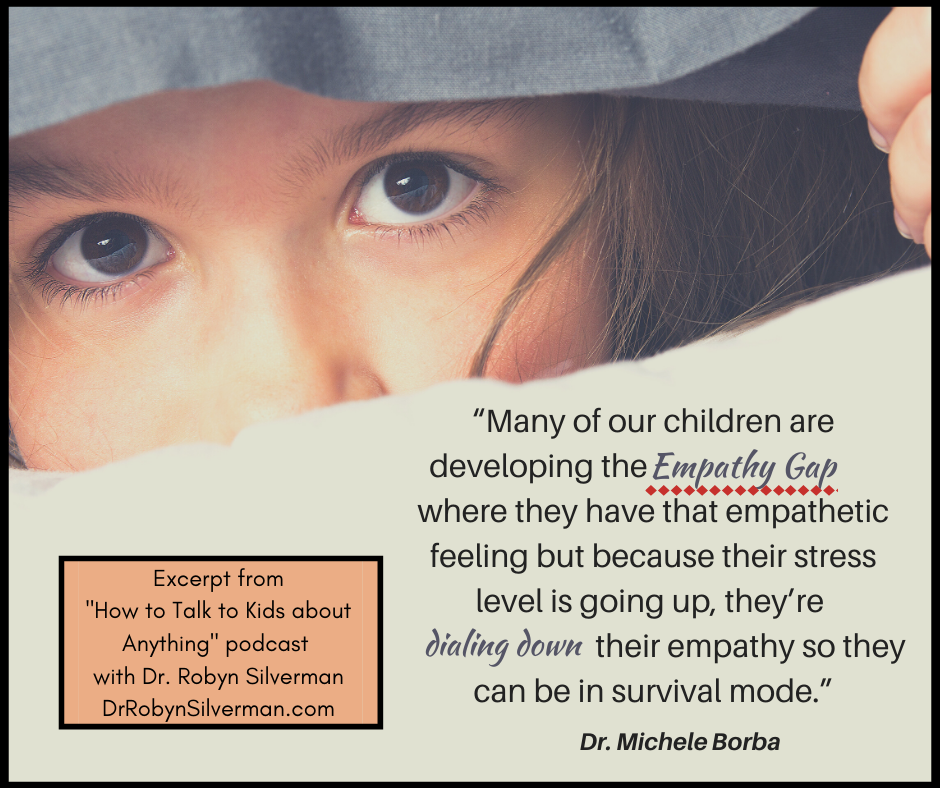
- Cultivate 9 habits of empathy such as perspective-taking & self-regulation
- Use a baby in the family, a puppy, movies, Facetime to help understand and learn emotion literacy.
- How to build the “kind mindset”
- The 4 tips navy SEALS are using.
- How service can help build altruistic children- match your child’s passion.
- Look for moments to talk about feelings and empathy.
- Modeling empathy for children.
- Family meeting: How do we want to be remembered?
- Developing a family motto that supports empathy
- Empathy can be nurtured- weave it into daily moments.
- How to build empathy in your child
- Scripts:
- What to say when a child is unkind to someone.
- What to say when you see empathy in action.
- Using the two-kind rule at your dinner table.
Important Messages:
- Empathy can be cultivated. We need to put empathy back on the parenting agenda.
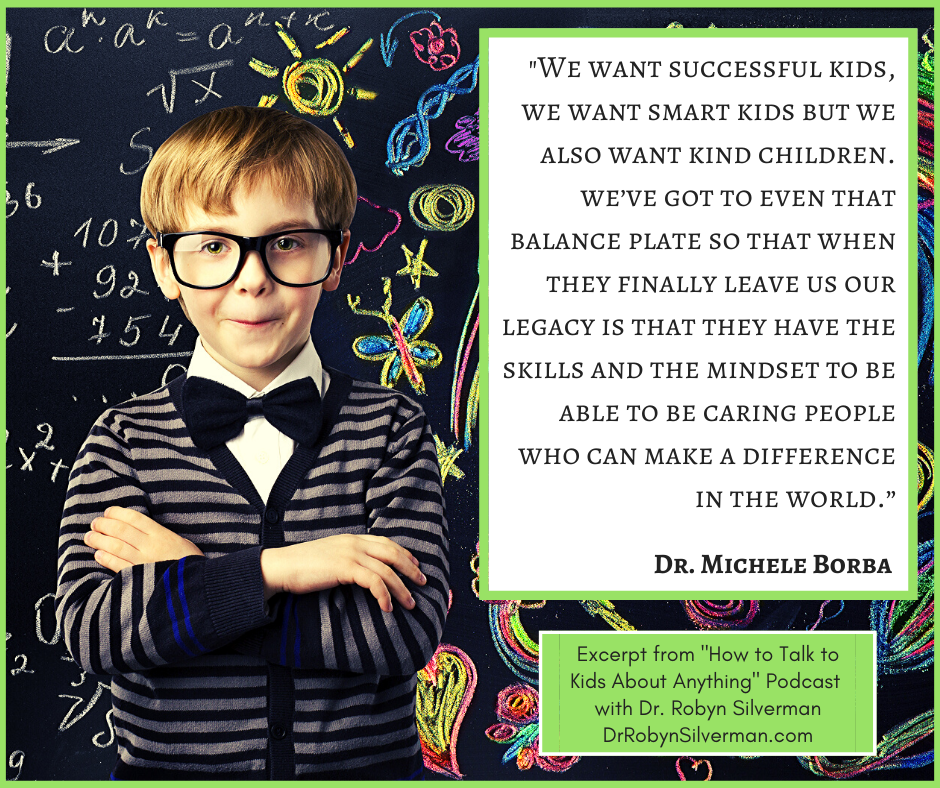
- Empathy doesn’t need to take so much time- but it needs to be included.
- When empathy goes up, bullying goes down.
- We need to use inductive discipline.
- Empathy is created through face-to-face connections- provide the opportunities.
- We need to practice and exercise empathy so it becomes part of who we are.
- Find one simple idea that will work for you and your family to help build empathy.
Notable Quotables:
- “Many of our children are developing the empathy gap where they have that empathetic feeling but because their stress level is going up, they’re dialing down their empathy so they can be in survival mode.
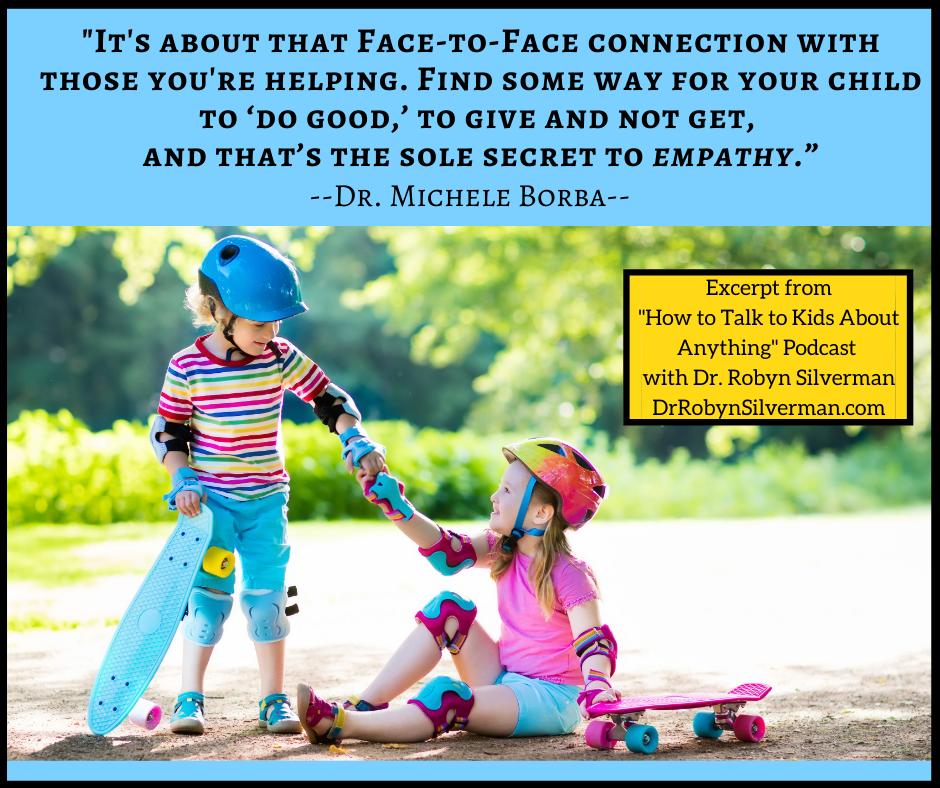
- “Empathy needs to be exercised…if you practice it over and over again what happens is you have a skill that a child will be able to use for the rest of their life.”
- “It all started with face-to-face connection…that’s what makes the change in a child. You can no longer go back to who you are.
- “Find something for your child to ‘do good,’ to give and not get, and that’s the sole secret to empathy.”
- “We have defined success so narrowly as just a GPA and an SAT score. And what we need to do is to realize we have one chance to do this right. We want successful kids, we want smart kids but we also want kind children and we’ve got to even that balance plate. So that when they finally leave us our legacy is that they have the skills and the mindset to be able to be caring people who can make a difference in the world.”
 “What I wrote Unselfie for is to really help us to create a legacy. Be the legacy so that you plant the values that you want in your child so that later on when you are not here, they are the people that you always hoped that they would become.”
“What I wrote Unselfie for is to really help us to create a legacy. Be the legacy so that you plant the values that you want in your child so that later on when you are not here, they are the people that you always hoped that they would become.”- “Once you realize you can nurture empathy, that our children are hardwired for it, you’ll look for dozens of just simple little daily moments to weave it in, take it up, and let your children know it matters. That’s how we produce a better generation of kids: A group of children who are unselfies, who think we, not me.”
- “We want successful kids, we want smart kids but we also want kind children. We’ve got to even that balance plate so that when they finally leave us our legacy is that they have the skills and the mindset to be able to be caring people who can make a difference in the world.”


